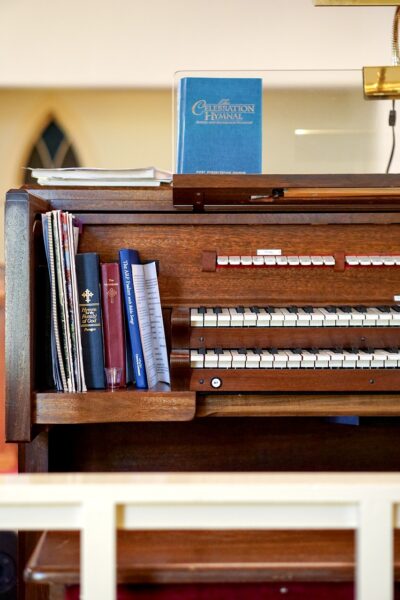When you go through a trial, if you don’t pass, you’re bound to repeat it til you get it right.
What is the indication that someone has “passed” a trial? Does a righteous God make people repeatedly go through something, and without indicating what they have done wrong, force them to repeat the trial because they somehow unwittingly failed? What is a mark of failure or success, from a Pentecostal perspective? Is it staying in church? Keeping a right attitude? Keeping a smile on your face in public even when you are dying inside? Forgiving and loving the people who hurt you?
When I was in school, we were given quizzes through a week or month. The quizzes and later our tests were scored, corrected, and returned to us. If we students reviewed our corrected quizzes, we saw the errors we had made and would learn from them. Many times, when I saw the correct answer to a question I had missed, that fact or answer would be etched in my memory. I would never make the same mistake again.
If the tests had not been scored, reviewed, or corrected, but only returned with “Pass” or “Fail” written at the top, we would not have known what we did wrong. We would not have been able to improve. We would have become frustrated by this method of grading. Any teacher who had graded this way would have been considered a very poor teacher and would probably been released from their position.
How then, in a walk with God, can people be repeatedly told they must have “failed” some test without being told what they did wrong or how to improve? What kind of teacher is God if he simply says, “You failed. Try again,” without showing us how to do better when we ask? That doesn’t make sense.
Someone might say, “All the answers are right there in the Bible- you’re just missing it.” Am I? God hasn’t opened his word and my understanding after years of the same problem?
For every one that asketh receiveth; and he that seeketh findeth; and to him that knocketh it shall be opened. If a son shall ask bread of any of you that is a father, will he give him a stone? or if he ask a fish, will he for a fish give him a serpent? Or if he shall ask an egg, will he offer him a scorpion? If ye then, being evil, know how to give good gifts unto your children: how much more shall your heavenly Father give the Holy Spirit to them that ask him? (Luke 11:10-13)
God isn’t playing games with us. He doesn’t leave us to fail repeatedly without giving us the answers as to how to succeed with Him when we ask.
As a child, when I would bring some supposed wrong to my mom, I’d often hear: “There are always two sides to a story,” “it takes two to tango,” or “and what did you do to her?” Mom loved me, but she raised me to understand that most things were not totally one person’s fault or another’s. If I was bullied at school, for example, she comforted me, but she also questioned where I was and why and offered solutions to avoid similar situations in the future. If I ignored her advice and walked back into the same situation again, I was at fault- not because the bully was right, but because I had not taken steps to prevent their wrong behavior toward me.
I have put that training to use in this situation. I am not totally at fault, as some in church would like to think. Nor am I not responsible at all for what happened, because I walked into the same problem more than once. That was not an issue of passing or failing a trial, that was an issue of trying too hard to make something work that just, well… didn’t. It is not my fault that I was falsely accused. It is not that God is putting me through some horrible trial repeatedly. But I allowed a wrong situation and wrong behaviors to continue, trying to be more forgiving, trying to forget their wrongful accusations and cutting words, attempting to be more submissive and obedient, trying to show that I don’t have a chip on my shoulder or that I’m not intrinsically a more wicked person than anyone else or that there isn’t anything “wrong” with me.
When the pastor would tell me that my situation was abnormal, that there was something wrong with me, that I was unforgiving or bitter or unsubmissive, I would go out of my way to attempt to be more normal, right, forgiving, or submissive, thinking he would eventually see that I wasn’t the terrible person that he apparently thought I was. He would shun me, and I would press for attention, craving the love I saw him show to others. He would be angry at me, and I would think it was my fault. I had failed again. He told me I was depressed and negative and so he didn’t want to spend time with me or have others around me. So I would try to act happy and positive, and he would tell me that I didn’t take his rebuke seriously! I finally realized there was nothing I could do to change what he thought of me. There was no way that I could ‘succeed’ in that man’s church, not because I was not a successful person, but because I was expected to fail. It took a very long time for me to understand what had happened, and really I’m still sifting through it all.
I am not to blame. It is not my fault, and I will not continue to go through the same trial repeatedly because I somehow unwittingly fail every time. How did I come to this? Because now, people say that I failed because I quit church. Yet I never quit before. So if quitting church is the mark of failure, I have passed with flying colors many times, yet was still repeating the same ‘trial!’ I won’t fail this test again. This time I will succeed. I will walk away from the bully and will not put myself within the bully’s reach again. And in doing that, I will succeed.
















